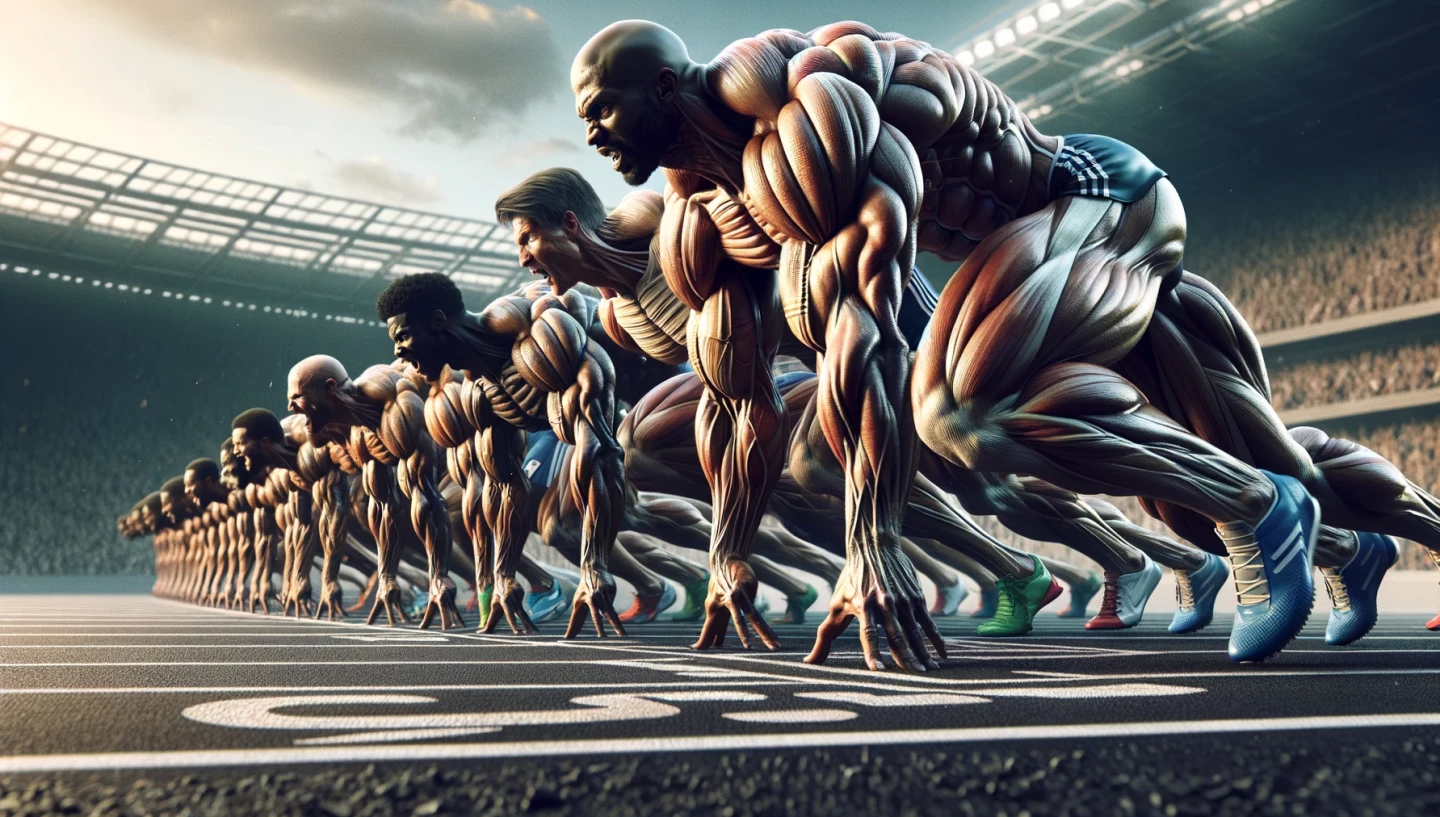It seems the Enhanced Games are on like Donkey Kong, with multi-million dollar investments from Peter Thiel and other high-profile VCs. Performance-enhancing drugs are welcome – indeed, this could become an early preview of a transhuman Olympics.
You could argue the Tour de France beat them to it – or indeed the regular Olympics themselves; of the top six fastest men ever to run the 100-meter sprint, only Usain Bolt has never tested positive for banned substances. Top-level athletic competition is filthy. Everyone's looking for every possible advantage. They've already sacrificed a normal life to take a shot at athletic stardom, they know that nobody will remember their name if they come home with silver, and they all suspect the competition is doing everything they can get away with. It's no wonder athletics is rife with cheating.
So why not be honest about it, and let everyone use the latest chemistry to push their biology to the absolute limits ? The best, and safest, drugs instead of the least detectable, all done under medical supervision? That's the rough idea behind the Enhanced Games; a controversial and potentially disruptive approach to athletics.
A confrontational one, too; another of this group's selling points is that they plan to pay all competitors fairly – a clear shot across the bows of the fat cats that profit handsomely off the Olympics while only paying prizes to those who make the podium. They also claim they're going to run their events without demanding government funding.

The Enhanced Games will allow anabolic steroids, which it considers safe and positive for the health of athletes – certainly safer than the mongrel brews many athletes currently use because they're less detectable in testing. It'll allow stimulants, nootropics, human growth hormone, glucocorticoids, beta blockers, cannabinoids, peptides, psychedelics... You name it. Bodily autonomy is the name of the game, and while the event will provide comprehensive medical screenings and advice to each competitor, it's up to an individual to decide if they're going to compete.
In some ways, it turns athletics into something closer to Formula One, where the human element is only part of the picture and technology is at least as important. Indeed, the Enhanced Games team says it will one day welcome gene transfer technology as well, which could theoretically level the playing field in the most fundamental way. The Olympics has never been fair, because everyone's genetic potential is different. Most people could train their whole lives and never have a chance. One day, that'll change.
While it's yet to announce its first event, the Enhanced Games team says it's got 900-odd athletes, including former Olympians, interested in competing. It's just finished a "multi-million dollar" seed funding round, with PayPal co-founder Peter Thiel and former Coinbase CTO Balaji Srinivasan getting on board, as well as Apeiron Investment Group's Christian Angermayer, who comes on board as a co-founder thanks to the event's "alignment with many elements of [his] own vision for the Next Human Agenda."

“By focusing on world records in popular sports such as track and field, swimming, gymnastics, weight lifting and combat sports, we can eliminate wasteful infrastructure spending and reinvest to fairly pay all athletes,” said Enhanced Games President Aron D’Souza, in a press release. “Just as the ancient Olympics were revived and renovated in 1896 for the Victorian world, the Enhanced Games is once again renovating the Olympic model for the twenty-first century. In the era of accelerating technological and scientific change, the world needs a sporting event that embraces the future, particularly advances in medical science.”
Personally, I'm not sure I've got a problem with this, although to be fair, my chances of getting an Olympics invitation are perhaps waning. If people want to push the limits honestly, openly and under a degree of medical supervision, I can't see why they shouldn't. Maybe the fire of competition will lead to better, safer performance-enhancing drugs I can take to get off the sofa without grunting. Maybe the dangers and side effects will become abundantly clear.
And maybe we're being too precious about the sanctity of the human body, in an age where bionics, brain chips, AI, gene editing and all manner of transhumanist technologies are coming within reach. If this stuff can make us better, maybe we should let it, and maybe the Enhanced Games are a symbolic step in that direction.
What are your thoughts?
Source: Enhanced Games







